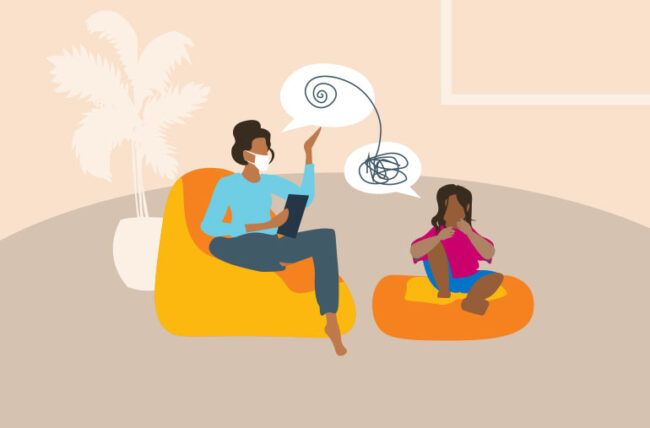Not all children are quiet at night.
One in ten children snores at night. And we’re talking more than the occasional stuffy nose. This type of snoring is often compared to lawnmowers.
This is a disturbing noise that can cause parents to have sleepless nights. Should you be worried if your kid is snoozing and making a ruckus? We’ll get an answer from Brandon Hopkins, MD , a pediatric otolaryngologist.
What is the cause of snoring?
Snoring occurs when you have a slight obstruction in your breathing during sleep. The air pushing through causes the soft tissues of your mouth, throat, and nose to vibrate and bump against each other.
Dr. Hopkins explains that these vibrations cause the wheezing or snorting sound we know as snoring.
This nighttime roar increases in volume as we age. This is largely due to a decrease in muscle tone, which can cause more constricted lungs. Also, weight gain is a factor.
This is why 25% of adults snore frequently and almost half of all adults occasionally.
What about the kids?
There are many reasons why your child may snore
Let’s first put your mind at ease. Consistently snoring is not necessarily a sign of a serious medical problem.
Six possible explanations are listed below:
Adenoids and large tonsils
Snoring is most commonly caused by excess tissue (or obstruction) in the throat. “Large tonsils or adenoids can cause a buildup of tissue in the throat, which leads to snoring,” says Dr. Hopkins.
The adenoids and/or tonsils can be surgically removed if they are causing sleep problems. These procedures are called tonsillectomy or anadenodectomy.
Find out if removal of tonsils or adenoids would be right for your child.
Allergies
Allergies can cause nasal congestion and inflammation, which may lead to breathing obstructions. Dust mites and pet dander can cause allergic rhinoitis.
Allergy medications available over-the-counter can be helpful in reducing allergies. Consult your healthcare provider for the best treatment.
Hypoallergenic bedding may also help reduce exposure to allergens in the home.
Asthma
Asthma is characterized by constricted airways, swollen and inflamed mucus glands and increased mucus secretion. These factors can cause breathing problems and snoring.
What’s the good news? Asthma is manageable. Create a plan with your healthcare provider.
Differed septum
The cartilage and bone that make up your nasal septum separate your nose into two sides. Dr. Hopkins notes that a septum that is uneven or crooked can make breathing more difficult, and cause loud ZZZs.
Deviated Septums affect about 80% people. This condition can occur at birth, during growth or as a result of an injury.
A deviated septum is usually not treated if there are no symptoms. If the condition causes breathing or sleep issues, repairs may be possible through a procedure known as septoplasty.
Extra weight
has linked obesity in children to a number of health problems. Sleep should be added to the list.
While you sleep, fatty tissue in your neck may press against your throat. This pressure can lead to constriction of your airway and snoring.
A healthy weight will reduce the pressure and thus the snoring. Even aerobic exercises can reduce snoring, according to research.
Sleep Apnea
Do you ever find your child gasping and coughing for air at night? They may be suffering from Sleep Apnea. This disorder causes children to stop breathing or struggle while they sleep.
Sleep apnea symptoms in children can include:
- Similar to Attention-deficit Hyperactivity Disorder (ADHD), hyperactivity or difficulty concentrating in school is a similar condition.
- Bedwetting.
- Heartburn.
- Night sweats.
- Frequent movements of the arms or legs while sleeping.
If you suspect that your child has sleep apnea, or any other sleep disorder, speak to your family physician.
When should snoring be taken seriously?
If you experience any of these symptoms, it could be a sign of sleep apnea.
- Most nights, your child will snore.
- Snoring is a common sound at night.
- The snoring can be very loud.
- You child sleeps regularly with the mouth and neck open.
- Your child may pause, or even gasp in their sleep.
Dr. Hopkins suggests keeping a sleep diary if you are concerned and intend to consult your child’s physician. Record your child’s sleeping habits starting an hour after bedtime.
He adds: “Track the number of nights per week that you snore and whether or not it occurs frequently at night.” It’s information that could lead to a possible solution.
And I hope you have a better night’s sleep.






















